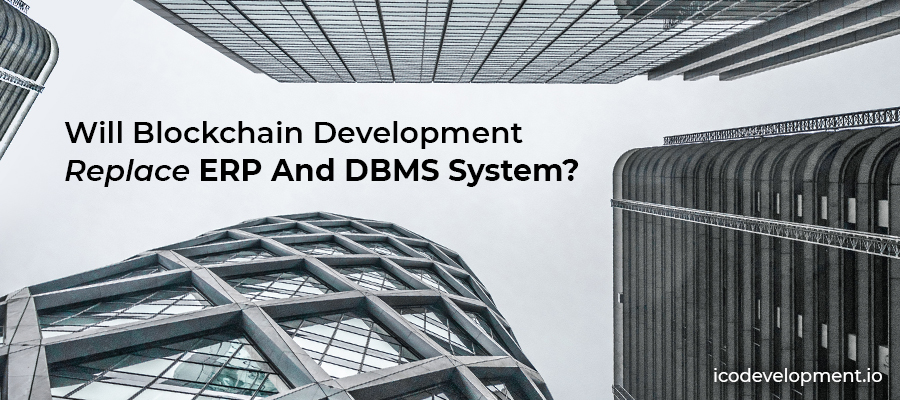The blockchain technology is considered the panacea of every problem a business or a company faces but to break that myth; Blockchain development is not the solution to every problem. Blockchain sure does data storage problems which were not possible with the traditionally used system, but it cannot replace those system known as ERP (Enterprise Resource Planning) system and DBMS (Database Management System). ERP is used explicitly for resource planning of a conglomerate. These resources are planning, financing, labor, Human resources, inventories, various manufacturing or service related resources. The purpose of ERP is to provide a simple solution to the complex integration of company resources for desired outcomes. And blockchain offers a simple solution for data storage and data sharing. For complex problems of manufacturing or supply chain company, only enterprise blockchain might be unfeasible.
Moreover, ERP provides a solution to a complex business resource problem, but there are two limitations, one being the inability to track information on real-time bases and manipulation of data. But the definite integration of ERP, DBMS, and blockchain can be the panacea of the supply chain and other business glitches. The combination of Blockchain technology and ERP can reduce these problems to a great extent.
Amalgamation Of Blockchain And ERP
01. Application Layer
The application layer contains the ERP system which works as a link between DBMS and Blockchain layer. It takes information from DBMS entered through blockchain application and delivers it as an action required for a particular project.
02. DBMS Layer
Large organization need control over their flow of information, that is DBMS when integrated with blockchain development can provide this feature. Bu t it will also offer the function of locking the data at the same time securing it with a private key.
03. Blockchain Layer
Blockchain layer plays its role with a hash function which time-stamps the data and connects every piece of information with the previous one. Two hash functions are used which are connected to DBMS as well as ERP system.
Blockchain development and ERP system, even when one of it is implemented, costs a lot to a business. ERP is the necessity of a corporation and blockchain is soon to be one. An integration of both will require in future, but the cost of implementing both can increase the business cost of the company. But there are three ways to use blockchain integration. First, we saw above where blockchain development from scratch is done; second is using an existing blockchain to use as data storage and retrieve immutable data any time. The third and more feasible option is integrating ERP with an already existing blockchain like ethernet and IBM (for hyperledger based projects). The cost and time required are lesser than the first option of blockchain-ERP integration.
The Future Challenges To Blockchain And ERP Integration
01. Only For Financial Transactions
First industry disruption by blockchain technology was financial industry. Even after a decade of the blockchain innovation, ledger of financial transactions is being kept. The lack of a transactions diversification challenges framework mentioned above because enterprise resources are more than just its financial operations.
02. No Standard Format
For an enterprise, resource planning and data storage are done based on a standard format which increases their effectiveness for each task. That is one of the reason big conglomerates pends millions on ERP system, right now there is no standard format which can effectively place ERP and blockchain integration.
03. No Concrete Laws
Mostly, Initial Coin offerings (ICO) token distributions are regulated in major countries only. The blockchain ledger if in future gets corrupted or a glitch occurs and affects the company’s data storage can cost huge. Also, laws to save from future hackers also requires.
04. Maintenance Of The System
The blockchain based application is a decentralized system, it is possible to control DBMS and ultimately controlling the flow of information but keeping the system healthy is also part of the process. Blockchain development company around the world provides the service, but it also needs standardization for enterprise use.

